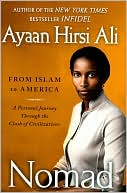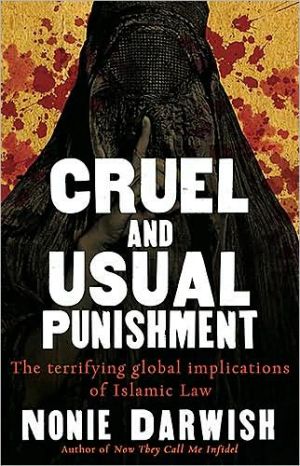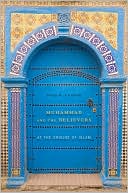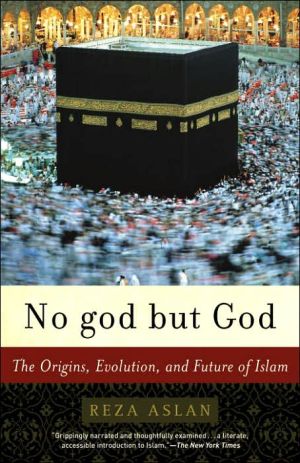The Crisis of Islamic Civilization
Ali A. Allawi - a respected Iraqi statesman and thinker who has served the postwar government in several senior positions — offers a bold analysis of today's crisis in the Islamic world.
Search in google:
Islam as a religion is central to the lives of over a billion people, but its outer expression as a distinctive civilization has been undergoing a monumental crisis. Buffeted by powerful adverse currents, Islamic civilization today is a shadow of its former self. The most disturbing and possibly fatal of these currents—the imperial expansion of the West into Muslim lands and the blast of modernity that accompanied it—are now compounded by a third giant wave, globalization. These forces have increasingly tested Islam and Islamic civilization for validity, adaptability, and the ability to hold on to the loyalty of Muslims, says Ali A. Allawi in his provocative new book. While the faith has proved resilient in the face of these challenges, other aspects of Islamic civilization have atrophied or died, Allawi contends, and Islamic civilization is now undergoing its last crisis.The book explores how Islamic civilization began to unravel under colonial rule, as its institutions, laws, and economies were often replaced by inadequate modern equivalents. Allawi also examines the backlash expressed through the increasing religiosity of Muslim societies and the spectacular rise of political Islam and its terrorist offshoots. Assessing the status of each of the building blocks of Islamic civilization, the author concludes that Islamic civilization cannot survive without the vital spirituality that underpinned it in the past. He identifies a key set of principles for moving forward, principles that will surprise some and anger others, yet clearly must be considered. Publishers Weekly Allawi (The Occupation of Iraq), former minister of defense and minister of finance in Iraq's postwar governments, offers his version of the causes and consequences of the "decline" of Islamic civilization and proposals for its rejuvenation. The author argues that the West's violent encroachment on the Muslim world in the 19th and 20th centuries shattered local institutions and economies and disrupted any natural evolution of Islamic society; furthermore, current efforts to "modernize" the faith amount to draping an entire civilization in ill-fitting, inorganic ideas. Allawi calls for a return to the creative and artistic heritage of Islam and a restoration of balance-"between the physical and the spiritual... between men and women; between rights and duties"-while suggesting that the time to find balance may soon run out. The writing is erudite and the conclusions fascinating, but Allawi's dismissive attitude toward Western societies and their "mass rejection... of the cardinal virtues, not least wisdom and moderation," as well as a reluctance to accommodate anything other than a faith-based understanding of human reality might limit his audience. (Apr.)Copyright © Reed Business Information, a division of Reed Elsevier Inc. All rights reserved.
THE CRISIS OF ISLAMIC CIVILIZATION\ \ By ALI A. ALLAWI \ YALE UNIVERSITY PRESS\ Copyright © 2009 Ali A. Allawi\ All right reserved.\ ISBN: 978-0-300-13931-0 \ \ \ Chapter One\ Tearing the Fabric \ The rain cloud of adversity is spreading over their heads [Muslims].\ Calamity is showing itself.\ Inauspiciousness is hovering behind and in front. From left and right is coming the cry; 'Who were you yesterday, and what have you become today! Just now you were awake, and now you have gone to sleep!' Prologue to the Musaddas of the Indian Muslim poet, Hali, first published in 1879, on The Ebb and Flow of Islam\ (TRANSLATED BY CHRISTOPHER SHACKLE AND JAVED MAJEED, OXFORD UNIVERSITY PRESS, DELHI, 1997), p. 103.\ What marks the decline or end of civilization? It is clear that certain civilizations and cultures have irretrievably disappeared from the passage of human history. The Meso-American civilizations of the Maya are a case in point. They collapsed, leaving monuments to their former glory but little else besides. Carthage was physically erased from existence by the punitive acts of a pitiless Rome - 'Carthago delenda est', said Cato the Elder, and he meant it. Most distinct civilizations, however, are either absorbed into more successful ones - frequently through conquest - or continue with their distinctpatterns but in a greatly weakened or submissive state.\ The Retreat of Islamic Civilization\ The apparent decline of Islamic civilization has been grist for the historians' mill for over three hundred years, yet without any satisfactory and definitive conclusions as to its extent, causes, and prospects. The early versions of the decline of Islam connect it to the fall of Baghdad to the Mongols in the thirteenth century: a discredited thesis, but one which still colours the popular imagination. What it lacks in historical veracity it makes up with the sheer drama of the end of the Abbasid Caliphate. It also perpetrates the dangerously deceptive conflation of Islam with the Arabs, ignoring the continuing vitality of the post-Abbasid empires and states based in Iran, Central Asia, North India and, of course, the Ottoman world. A universal consensus has evolved, however, to the effect that Islamic civilization has been in decline since the seventeenth century and that the community of the 'World of Islam' - the huge hemispheric 'Islamicate' space - has been under serious assault, both from within and without. The patterns of unity that marked this universe appear to have broken up, leaving powerful collective memories of what had been - imagined or otherwise.\ Will the civilization of Islam ever be capable of regeneration in the form and extent of its past? Is this a dangerous nostalgia which could descend into an irascible sullenness - or, worse, into violence and terror? Islamic civilization has occupied a critical and commanding position in world history. However, the redefinition of the world according to the norms of modernity and the huge technological, cultural, military and economic power of the West, centred as it is around the United States, and increasingly also of East Asia, have consigned it to an essentially subordinate - and even meaningless - role. Islam, even on its own terms, appears to be at odds with the rest of the modern world. A once distinguished historian of Islamic civilization has ended up by treating the subject of his life-long studies as a form of tranquilizing drug, 'bringing comfort and peace of mind to countless millions', but little else besides - to relieve unrelenting poverty and underachievement. At best, Islam is damned with faint praise which accentuates its marginalization and irrelevance.\ This is not the only depiction of Islam. There are by now a large number of apologists who argue for Islam's compatibility with the modern world. They include Muslims and non-Muslims, scholars and laymen. Their musings are driven by a desire to make Islam fit into the shoe of modernity and into the world of universal human and democratic rights.\ Both these attitudes can trace their lineage to similar debates, which have been raging ever since Islamic civilization moved from being the dangerous 'Other' to falling into the sphere of control of the European powers. There is a remarkable resonance between the spirited clashes of the nineteenth century among Islam's defenders and detractors and what is taking place now between proponents of the permanent ascendancy of the West as the engine of world history and those who believe in the potential of Islamic civilization to revitalize itself, regain its confidence and assert its vision on mankind. Now that Islam is once again the dangerous 'Other', the outcome of these debates can have momentous consequences.\ These issues first broke into the public arena in the nineteenth century, as the European powers' hold on the Islamic world consolidated. European encroachments into Muslim territory had begun well before this period, but the protagonists were not primarily states but commercial companies with special, often monopoly, charters. Companies such as the English East India Company, founded in 1600, or the Dutch United East Indies Company (VOC), which was established in 1602, were also authorized to wage war and negotiate treaties. As these companies sought to dominate the trade in spices and other commodities and goods from territories ruled by Muslims, they encountered the first signs of popular resistance. In Java, a rebellion against the Dutch VOC company broke out in 1670, led by the charismatic Sufi Sheikh Yusuf al-Maqassari. Born into a noble family from the Celebes, he departed for Mecca when he was eighteen, to pursue his religious education. He was initiated into a number of Sufi orders and returned to become a teacher and spiritual guide (as well as son-in-law) to the Sultan of Banten in Java. The rebellion was finally put down in 1683, whereupon Sheikh Yusuf at the age of sixty-eight was exiled to the Cape colony, which was also run by the Dutch East Indies Company. The few years that Sheikh Yusuf spent in the Cape colony before his death in 1699 left a lasting mark on the course of Islam in South Africa. His burial place in the Cape became a much visited shrine for the Muslims of South Africa.\ But the age of the European commercial company brandishing a royal monopoly charter and acting as the vanguard of the penetration of Muslim lands did not last beyond the nineteenth century. It was now the turn of nation-states to dominate as imperial powers. The periphery of the Islamic world came under attack first. France launched its North African empire with the capture of Algiers in 1830, sparking a decades-long struggle against strong local resistance led by the towering figure of the Emir Abd el-Qadir. In 1858, following the savage repression of a widespread insurrection against British encroachments, Britain finally imposed its direct imperial authority over India, displacing centuries of Muslim control - even though mainly titular - over large parts of the sub-continent. The British government also abolished the East India Company, which had directly administered most of India. Britain added Egypt to its dominion over Islamic lands in 1882. By the end of the nineteenth century, entire swathes of Muslim territory fell under European control, leaving only a shrinking Ottoman Empire and the Qajar dynasty in Iran as much diminished states. By the end of the First World War, what remained of that rump became reduced even further, as the Ottoman Empire - for long the pride of Muslim power - was broken up into an array of successor states in the Arab Middle East and Turkey. Islamic civilization, which had nearly always been coeval with rule by Muslims over Muslims, had to contend with a drastically changed world order.\ In earlier times, when Muslims came under the control of non-Muslim powers, the outcome was, more often than not, mass expulsions and an early form of 'ethnic cleansing'. The experience of Muslims in Spain after the fall of Granada in 1492 is a case in point. The retreat of Ottoman power in the Balkans is another example where displacement and expulsion of long-settled Muslim populations was a concomitant of the establishment of nation-states in the former Balkan territories of the empire. However, the crisis that affected the Muslim self-image as a result of the imperial invasions and intrusions of the nineteenth and twentieth centuries was of a qualitatively different nature. The incoming powers sought economic and political dominion and dispossessed and displaced large numbers of people in the process. But in only a few instances was there a concerted effort to replace the indigenous population through colonial settlements, or an ethnically or religiously motivated plan to denude the area of its Muslim population. That would come later. The projection of European imperial power in an almost effortless demonstration of its superiority in military, technical, material, organizational and governance matters challenged the core assumptions that underlay the world view of Islam. Nearly all contemporary Muslim observers of the unfolding drama of European conquest and expansion would bemoan the huge chasm which had opened between the capabilities of the two civilizations and the helplessness of Islam in front of the European juggernaut. As one would-be reformer wrote in 1879:\ O, Sons of the East, don't you know that the power of the Westerners and their domination over you came about through their advance in learning and education, and your decline in these domains? ... Are you satisfied after your past achievements ... to remain in that wretched state into which you were plunged by ignorance and error?\ Missing the Danger Signals\ The failure of Muslim rulers and societies to address the twin threats of growing European imperial power and the advent of modernity has exacerbated the Islamic crisis. At one level, this was prompted by the unwillingness of a long-dominant civilization, which had been confident of its superior worth, to engage with what it considered a lesser form. This is certainly the perspective of those who see Islam as engaged in a millennium-long struggle with other civilizations - in particular with Christendom - when, for most of the time, Islamic civilization was ascendant. The sense that Islamic civilization could learn anything of consequence from such cultures - until then considered marginal - was preposterous. The religion of Islam had been perfected, and Muslims, as long as they remained faithful to Islam's precepts, would ensure their victory in this world and the next.\ At another level, this failure has more to do with the unprecedented rate at which the technical and scientific advances in the West developed after the seventeenth century; they created an almost unbridgeable 'technological gap' between the West and the Muslim empires of the pre-modern period. The adoption of the techniques of modern warfare and administrative organization by the Muslim empires of the era, mainly for defensive reasons, simply could not keep pace with the changes taking place in the West. It was almost inevitable that the confrontation, when it occurred, would be one-sided. Islamic civilization had perfected itself within its own realm and did not have the attributes necessary to confront a civilization organized along unfamiliar, and ultimately more dynamic, principles.\ Of course, these arguments cannot be conclusive. Their starting point has mainly been an occidental framework leading to conclusions which are not shared by those whose conceptual basis is different. Another perspective is that of the West's overt proselytizers, be they religiously or racially inspired or simply intoxicated by the very success of western civilization. The much maligned orientalists of the nineteenth and twentieth century fit partly into this category, although it is not too clear how far they were motivated by their supposed role as imperialism's apologists and handmaidens. Muslim thinkers have understandably viewed the causes of their own decline from a different perspective, but they were certainly affected by the torrent of analyses of their civilization emanating from the metropolises of imperial power.\ In all of these variants of the question 'What went wrong?', few have stood back to assess the failure of large parts of the Islamic world to recognize the danger signals. The initial threat came from the West as well as from the territorial expansion of the Tsarist state. It arrived imperceptibly and took Islam completely unawares. Islam did not face much of a menace from Hinduism, Confucianism or Buddhism. China had been inward-looking for centuries. Japan was an insular power and had effectively cut itself off until the arrival of Commodore Perry's flotilla of 'Black Ships' in 1853, in Tokyo Bay. The warships had been dispatched by President Fillmore as a show of force, with a demand that Japan open itself up to international trade. In most of India, Hinduism had been subordinate to the primacy of Muslim rule. Muslim travellers and diplomats in the West could not quite translate what they saw and experienced into an urgent clarion call to action. And, when the threat finally began to reach home - through military defeats, superior western technical and organizational skills, or seizure of markets by western manufactured goods - it was never recognized for what it was until it was almost too late.\ For example, the gradual extension of the reach of the East India Company into large parts of India presaged the destruction of Muslim power in the sub-continent. But the campaigns of Tippu Sultan, the ruler of Mysore, were equally directed against recalcitrant Muslim princes and rulers who had made common cause with the company. In his final battle against the British in 1799, in the fourth Anglo-Mysore War, in which he was killed, Tippu Sultan had to face not only the troops of the company but an equally large force raised against him by the Muslim Nizam of Hyderabad. The flood of adventurers and land-grabbers into Algeria in the 1830s and 1840s did not galvanize all of Algeria's tribes into a common front in the face of the menace from foreign colonizers and settlers. Neither could these tribes relate the gathering threat to the inclusion of their territories into France's empire. There was little understanding of the dynamics of imperial powers, and the patterns by which their control and dominion were achieved were not fully understood by Muslims.\ In other instances, the threats were simply ignored because recognizing them would have conflicted with one or more of the established centres of power. So the resistance of the Ottoman elite forces - the Janissaries - to wholesale reform and reorganization was partly due to their fears that their privileges and unique structures would be abolished. Similarly, the religious scholars - or ulema class - in nearly all the nineteenth-century Muslim empires refused to countenance the introduction of administrative, educational and legal reforms because that would have undermined their own status as guardians over law and education.\ Muslim leaders of command and genius did appear on the scene but they were severely mismatched, especially when the European power would bring all of its material and organizational resources to bear. Frequently the leader of the time would be fighting several battles against his fellow Muslim rulers and putative allies as they would neither acknowledge nor accept his command, driven as they were by jealousies and fear of loss of power and status. Betrayals and double dealings by one's own people were the order of the day in the wars of Emir Abd el-Qadir against the French in Algeria (1832-47), or in those of Imam Shamil against the Russians in Chechnya and Daghestan (1834-59). This experience would be repeated whenever traditional leaders first rose to confront the intruders. In the case of Abd el-Qadir in particular, the necessary combination of religious authority and military prowess could have provided the prototype for the sort of leadership which was needed in order to secure for Islam the space for coming to terms with 'technification' and its profound implications, before European power became irresistible.\ The Resistance of Traditional Islam\ The campaigns of Abd el-Qadir (frequently termed jihad) also provide tantalizing glimpses into the way particular Muslim societies could have slipped into the pathways of modernity on their own terms. Abd el-Qadir was not unaware of the material and technical advances of his adversaries. He confronted them regularly on the battlefield. In the state he ruled in Algeria he did try to introduce the elements of the new technical civilization, but always in a role subordinate to the Islamic nature of his government. His was the last generation of those who confronted these challenges from an Islamic framework that was not affected or distorted by a superimposed European imprint.\ (Continues...)\ \ \ \ \ Excerpted from THE CRISIS OF ISLAMIC CIVILIZATION by ALI A. ALLAWI Copyright © 2009 by Ali A. Allawi. Excerpted by permission.\ All rights reserved. No part of this excerpt may be reproduced or reprinted without permission in writing from the publisher.\ Excerpts are provided by Dial-A-Book Inc. solely for the personal use of visitors to this web site. \ \
Preface ixPrologue: The Axes of Islamic Civilization 11 Tearing the Fabric 222 The Break with the Past 413 The Counter-Revolt of Islam 634 Disenchanting the World 855 The Reformations of Islam 1096 Territory and Power 1377 Where Next for the Islamic State? 1578 Human Rights and Human Duties 1869 Wealth and Poverty 20610 The Decline of Creativity 22911 The Last Crisis 249Notes 274Index 292
\ Publishers WeeklyAllawi (The Occupation of Iraq), former minister of defense and minister of finance in Iraq's postwar governments, offers his version of the causes and consequences of the "decline" of Islamic civilization and proposals for its rejuvenation. The author argues that the West's violent encroachment on the Muslim world in the 19th and 20th centuries shattered local institutions and economies and disrupted any natural evolution of Islamic society; furthermore, current efforts to "modernize" the faith amount to draping an entire civilization in ill-fitting, inorganic ideas. Allawi calls for a return to the creative and artistic heritage of Islam and a restoration of balance-"between the physical and the spiritual... between men and women; between rights and duties"-while suggesting that the time to find balance may soon run out. The writing is erudite and the conclusions fascinating, but Allawi's dismissive attitude toward Western societies and their "mass rejection... of the cardinal virtues, not least wisdom and moderation," as well as a reluctance to accommodate anything other than a faith-based understanding of human reality might limit his audience. (Apr.)\ Copyright © Reed Business Information, a division of Reed Elsevier Inc. All rights reserved.\ \ \ \ \ Library JournalAllawi (The Occupation of Iraq) investigates the pathways that led to the deterioration of the Islamic civilization, known for its splendid culture between the eighth and 12th centuries. The inadaptability of Islam to modern life, the author argues, stems from its deep roots in the sacred. To be modern, according to Allawi, is to be liberated from the divine as the sole source of ethics and virtues. Allawi demonstrates that the individual in Islam is not an autonomous entity-a common principle in all religions-rather, its essence is driven from a complete submission to the godly creeds. He notes that the secularization of Muslim societies, which seemed to be on track until the mid-1970s, has shattered, giving way to political Islam. He suggests that the failure of Muslim societies to address the challenges and the threat of fast-growing Western cultural imperialism deepened their crisis. In an analytic, journalistic style, Allawi presents views about modern Islam that are both stimulating and informative. This provocative book is recommended for informed readers.\ —Sadiq Alkoriji\ \ \ \ Muslim News“. . . a challenging and ambitious effort . . . thoughtful, pertinent and informative . . . I have no hesitation in recommending [The Crisis of Islamic Civilisation] to others, Muslims and non-Muslims alike.”— Muhammad Khan, Muslim News\ — Muhammad Khan\ \ \ \ \ \ Literary Review". . . Allawi’s work is a searing indictment of Islamic societies but not of Islam itself . . . his expositions of the ideas of Muslim thinkers are exemplary in their lucidity . . . I learnt a lot from this book.” — Literary Review\ \ \ \ \ Wilson Quarterly"Like many other disappointed politicians, Ali Allawi turned to the consolations of philosophy and religion. The result is a remarkably thoughtful and engaging assessment of the current state and future prospects of the world of Islam."—Martin Walker, Wilson Quarterly\ — Martin Walker\ \ \ \ \ \ The Washington Post Political Bookworm“A take no doubt burdened by the horrors he’s witnessed on the ground, not to mention the frustration of creating a truly functioning government in Baghdad.”—The Washington Post Political Bookworm\ \ \ \ \ The Economist“. . . [with] intimate knowledge of both Islam and the West, and his unflinching honesty . . . Mr Allawi calmly and methodically deconstructs an Islamic revival which has failed to live up to its promises.” — The Economist\ \ \ \ \ Muslim News“. . . a challenging and ambitious effort . . . thoughtful, pertinent and informative . . . I have no hesitation in recommending [The Crisis of Islamic Civilisation] to others, Muslims and non-Muslims alike.”— Muhammad Khan, Muslim News\ \ \ \ \ Wilson Quarterly"Like many other disappointed politicians, Ali Allawi turned to the consolations of philosophy and religion. The result is a remarkably thoughtful and engaging assessment of the current state and future prospects of the world of Islam."—Martin Walker, Wilson Quarterly\ \








